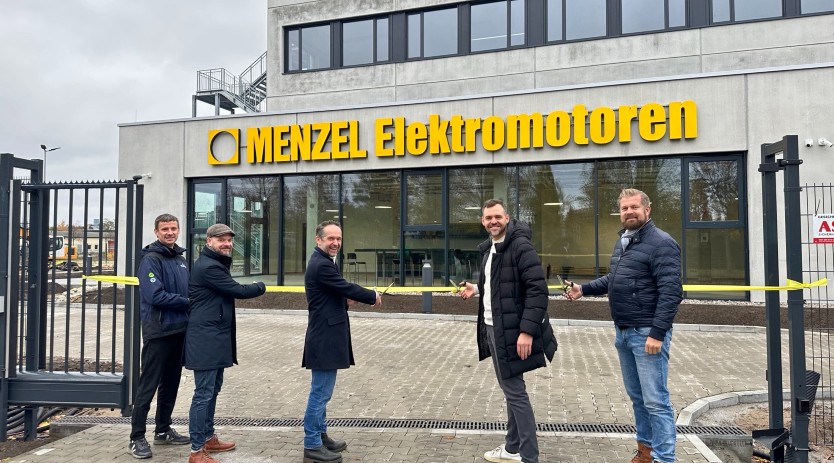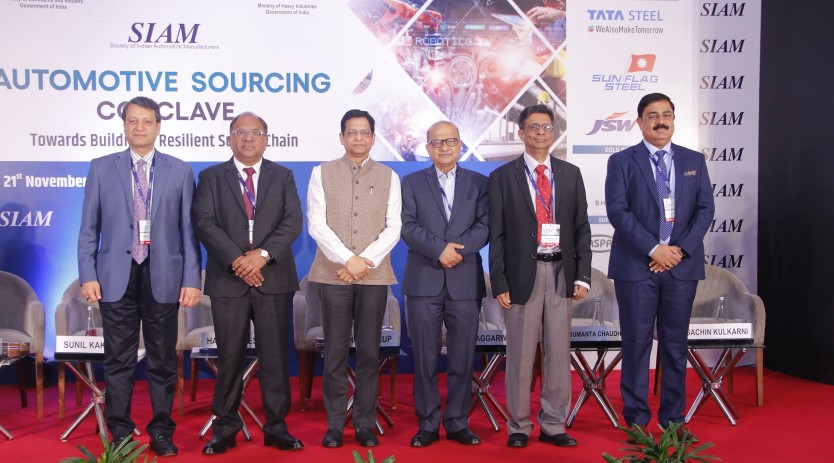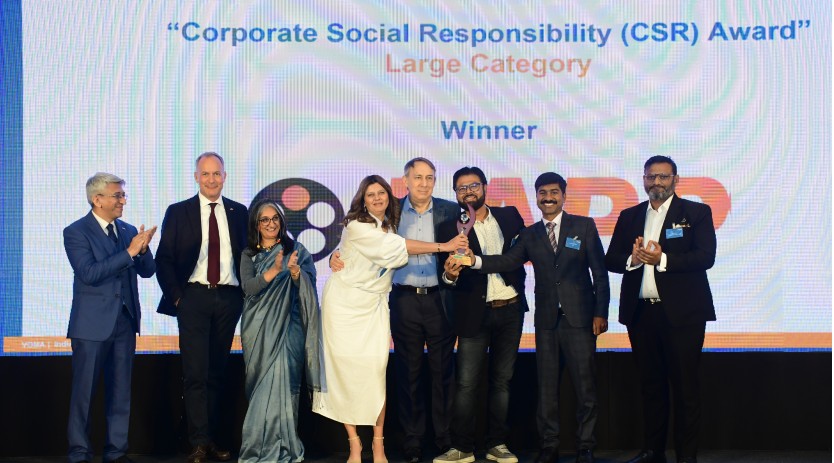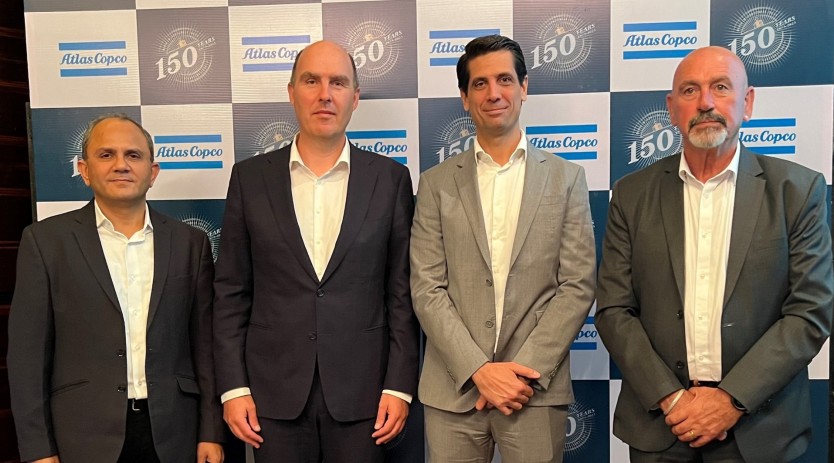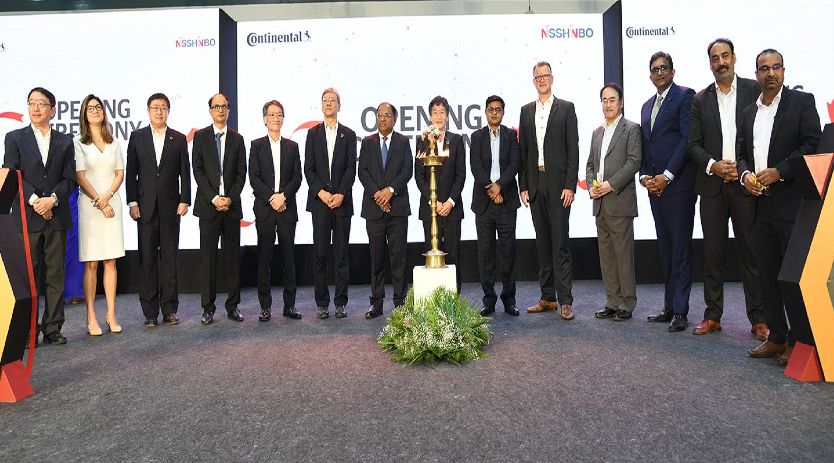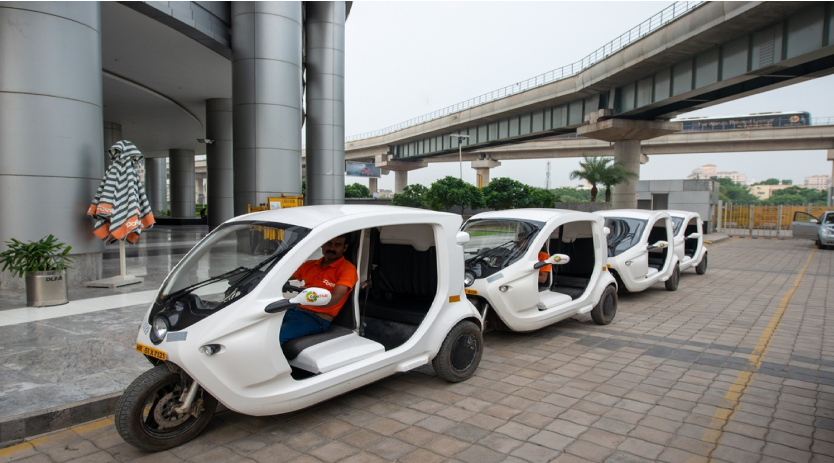‘Startup India’ movement to create opportunities
March 29, 2016 5:08 pm
Experts from the industry speak about the opportunities for Indian manufacturing sector that is going to be created as a result of the Startup India movement
Indian market always had tremendous opportunity to grow in manufacturing sector. This opportunity remained untapped due to various policies and difficulty in business process and establishment procedures. With opening up of ‘Make in India’ campaign industries are seeing the government’s willingness to welcome the new business. This will make the process of setting up the facilities easier.Sadananda Koppalkar, Head – Business Development – EDM – Die and Mould, Makino India Pvt Ltd informs, “Currently India’s GDP is overly dependent on services sector which is 56 per cent of GDP and manufacturing sector contributes only 16 per cent to GDP. With a greater contribution from manufacturing sector the health of GDP will be better and sustains the long term growth.”
With ‘Make in India’ initiative many OEMs from different sectors may enter India and set up their manufacturing hub. There by we can see the increase in TIER1 and TIER2 companies increasing their capacities and many new entrants in these categories. Especially defence, construction and railways are open to private investment; in defence the FDI cap has been doubled, and on a case-to-case basis, 100 per cent FDI may be permitted; 100 per cent FDI in rail projects and in construction. The defence manufacturing was largely confined to the Indian military services but with this initiative the industry is opening up for the other opportunities largely unexplored. Such transformation needs a drastic shift in manufacturing process to make the products competitive and meet the lead times. Hence the demand comes for capital equipments to supply the superior technological products. “Many new companies if they open new ventures in India about manufacturing we will have good scope. If they decide to do only assembly in India we will not have enough opportunities. All these initiatives have to ensure productivity, quality, delivery commitment with keeping cost in mind. Global layers needs all these while negotiating but are not sure about regular flow of business,” observes Ramkripal Yadav, General Manager – Key Account Sales and Marketing, Haas Automation India Pvt Ltd.
Seeking to make the country a global manufacturing hub, Prime Minister Narendra Modi’s ‘Make in India’ campaign is the right approach in today’s situation for our developing nation with 1.27 billion population. Since the campaign is aimed at making India a manufacturing hub and the government is pulling out all the steps for ensuring a smooth sailing for investors, by setting up a dedicated cell to answer queries of business entities within 72 hours. It will also closely monitor all regulatory processes to make them simple and reduce the burden of compliance.
“Definitely for global investors, FDI is an opportunity. I agree that manufacturing boost will create jobs, increase purchasing power, thereby creating larger market for manufacturers. This will really help for skill development our own people. This will create development and growth-oriented environment,” says Keshav Khurana, Executive Director, Wohlhaupter India Pvt Ltd.
Manufacturing will enhance country’s macro-economic stability besides creating jobs and in this way problem of inflation and unemployment will be controlled, which is the need of the day.
There is no denying that robotic technologies are all set to change the way things are done in the industries in which they are being implemented. “All the entrepreneurs we spoke to voiced a similar sentiment and are clearly optimistic about the use of robotics in various industrial segments and its future in India,” says S K Palit, Head of Product Improvement, Equipment Quality, CCC and Technical Support to WAPS, Ador Welding Ltd.
There is a huge potential for adoption of robots and robotics automation in Indian manufacturing sector in the coming next 10 years. Currently, India is importing robots from different countries like Japan, Europe, China etc, to cater current market demand. Importing of robots is expensive due to high rate of import duty and currency rates fluctuations. The domestic demand for robots in manufacturing sectors is increasing day by day majorly due to demand of high quality products for both domestic as well as export market.
V V Kamath, national Sales Director, Fronius India Pvt Ltd points out, “India is slowly becoming manufacturing hub not only in general industry but also in the aerospace and hi-tech areas. This will offer the higher possibility of automation, and quality manufacturing process. We from Fronius always develop futuristic technologies and therefore we see a prospering opportunity in the manufacturing sector.”
Robotics is envisaged to be mainly capturing industries like manufacturing, pharmaceutical, FMCG, packaging and inspection. A bit of robotics would also be seen in the healthcare sector primarily in the form of assistive and skill development technologies. The other promising sectors are defence and education.
Going forward it is inevitable that robotics will become an important aspect of our lives (even if it works in the background, hidden from our eyes). As with other technologies, adoption in India is usually sluggish, however, once picked up, it does follow a steeper growth trajectory. “We are certain that in sectors where demand is rising, there will be huge opportunities and hence a higher rate of adoption of robotic technology. Due to globalisation and high industrialisation, robotics in India is poised for a bright future. Considering that India is already a manufacturing hub catering to the whole world, the use of robots in every aspect of manufacturing will provide the necessary edge to companies. In turn this will propel the requirement of skilled manpower for this technology. As there is acute shortage of reliable blue colour labour in all industries, coming up with robotic solutions that can solve this problem will lead to the growth of a separate robotics sector in India,” observes Palit.
In current market scenario, setting a big infrastructure for manufacturing robots is not advisable atleast for next 5 years. At the same time, developing fixtures and system for robots, hardware and software development for robotic automation, developing apps which provide automatic command to robots are few projects wherein entrepreneurs showing interest to associate with ‘Startup India’ and ‘Make in India’ movement. Startup India entrepreneurs can target domestic as well export market particularly in countries like South Africa, Gulf region, Asian sub-continent etc. They can also target robot companies based on level of their technical competency.
“We appreciate both movements of our Honourable Prime Minister for facilitating young entrepreneurs for developing ground breaking products that will be used by people around the world. Over the past few years, the startup ecosystem has witnessed exponential growth in India. Yaskawa India has robotics division, having world class infrastructure in Gurgaon for developing fixtures and systems to cater domestic and export market. Currently, we are manufacturing fixtures and system for Japanese customers like Suzuki Motorcycle, Honda Motorcycles, European customer like Tenneco, Faurecia, Visteon etc. We commit ourselves to promote ambitious plan of government of India and our beloved Prime Minister” says Sanjay Tiwari, Dy. COO and Dy. Chief Financial Officer of Robotics Division of Yaskawa India Pvt Ltd.
In regards to the ambitious ‘Startup India’ movement, Rashmi Ranjan Mohapatra says, “The implementation of the policy is the key to success, converting the opportunities to real action will be a challenge for all of us.” n
Right ecosystem needed for startups in India: Amitabh Kant“What our startups need is the right ecosystem. What is required is quality infrastructure, not incentives,” said Amitabh Kant, Secretary, Department of Industrial Policy during the Make in India Week.
He said, “The government is focused on creating the best possible infrastructure on the ground. I think plenty is to be done on the ease of doing business. We have to sustain this whole effort. We have to keep making India an easy and simple place to do business. We have to keep encouraging and supporting startups with vigour and energy. We have to push innovation and design. We also have to keep opening up India’s economy more and more.”
Extolling the key achievements of the Make in India initiative, Kant said, “It has brought ease of doing business, opened the FDI regime and taken manufacturing centre-stage. I think the key point is that a lot has been done in the last 18-19 months. The Indian economy has been opened up. Vast sectors of our FDI regime have been opened up. We have made India an easier place to do business in.” He said that this is one of the largest multi-sectoral exhibitions that there has been. Indian manufacturing is on full display and people can see what has been achieved.
He further mentioned that India has been able to improve its position in ease of doing business by 12 ranks, competitive spirit has been unleashed among states by the ranking process and India, from being one of the most closed economies, is now one of the most open economies of the world. FDI is up by 48 per cent as compared to a global decline of 16%.
The DIPP Secretary, who is considered an evangelist for young startups in the country, said, “With the Start Up India initiative launched by the Prime Minister Narendra Modi we are confident of breaking the clutter, cutting through the red tape and ensuring the smooth progress of the startup movement.”
The plan is to nurture startups in India by creating an ecosystem favourable to them. Exemption on tax on capital gains and exemption on income tax has been allowed to startups. All startups incorporated in India not prior to five years as per the definition of startup and starting the operations before 2019 can get this benefit for three years highlighted Kant.
He said that the Startup App is a crucial element of the entire ecosystem. The government focus stands on cutting red tape and lending support to startups through this app. Five States have already rolled out their policy to enable startups.
Cookie Consent
We use cookies to personalize your experience. By continuing to visit this website you agree to our Terms & Conditions, Privacy Policy and Cookie Policy.




